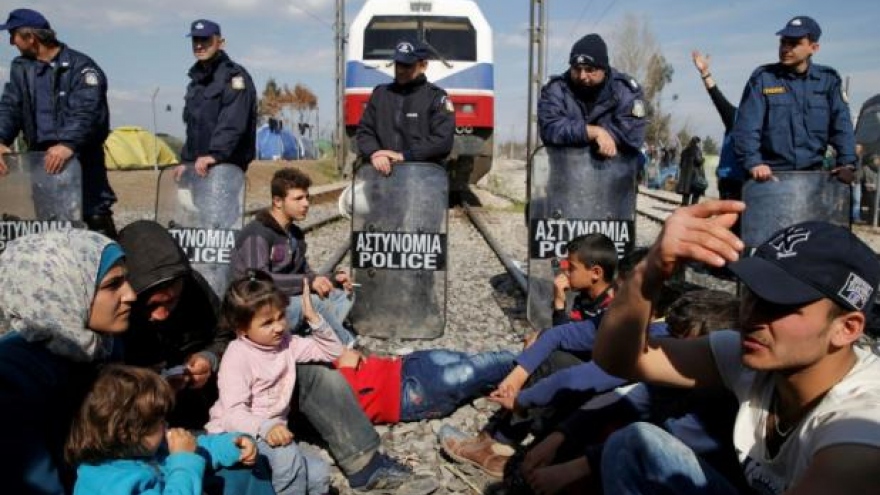It proposed no new measures, but told European Union countries to abide by existing EU law and stop the "wave through" approach that has led to a million migrants and refugees marching north through the Balkans from Turkey through Greece.
"Schengen is our unity," the EU's migration commissioner Dimitris Avramopoulos, said. "We cannot have free movement internally if we cannot manage our external borders effectively."
The proposal comes ahead of an emergency EU summit with Turkey next Monday to discuss how to halt the influx of migrants that has driven several EU and Western Balkan states to re-impose border controls.
The EU is scrambling to implement a strategy to curb the inflow before warmer weather encourages more arrivals across the Mediterranean.
More than 135,000 migrants have arrived in Europe - mostly through Greece and fleeing the war in Syria - so far this year after more than a million people entered the bloc in 2015, trekking chaotically towards wealthier EU states, mainly Germany and Sweden.
Seven Schengen countries including Germany have emergency border controls in place now and the Commission said it wanted them all lifted no later than December with an eye on fully restoring the partly-suspended area by the end of the year.
Open internal borders are widely seen as a major achievement of European integration that facilitated travel, tourism, trade and supply chains across the bloc, fuelling economic growth.
In its report, the Commission estimated the direct cost of fully imposing border controls inside the Schengen zone at 5 to 18 billion euros a year, with additional administrative and second-wave costs on top of that.
First hit would be the transport and tourism sectors, as well as the people who commute to work daily across borders.
However, JPMorgan Chase bank said in a note to clients the direct impact of an imposition of selective border controls, more likely than a complete lockdown, would be "small in business cycle terms".
ODIUM ON GREECE
Temporary border controls inside Schengen expire in May and would only be lifted if Greece, which has been overwhelmed with the influx, ensures proper controls on its borders rather than wave people through to wealthier European states.
Greece has little economic power to handle the migrants as it is still under an international debt bailout.
Athens has until May 12 to prove to Brussels and fellow EU states that it has met border standards or else the bloc would suspend the country from the Schengen zone, by allowing for an extension of the emergency border checks for up to two years.
"The wave-through approach must end," the Commission paper said. "Member States must ...comply with EU law, both in terms of granting access to the asylum procedure for persons requesting asylum and in terms of refusing entry at the border to persons who do not satisfy the entry conditions."
"Under EU law, asylum seekers have no right to choose the Member State granting them protection," it added.
The plan calls for deploying the proposed common European Border and Coast Guard to tighten the continent's external borders no later than August.
Other measures the EU has agreed but failed to implement include mass returns of people not eligible for asylum in Europe to Turkey and relocating those already in the bloc and waiting for their asylum decisions from Greece to other EU states.
"Taken together and in a coordinated way, these measures will lay the foundations for a return to a normally functioning Schengen area at the latest by the end of 2016," it said.
An EU deal with Turkey last November offering 3 billion euros in aid in return for action to curb migrant flows has so far failed to bring down the number of arrivals sharply. That is the top agenda item of next Monday's Brussels summit.



